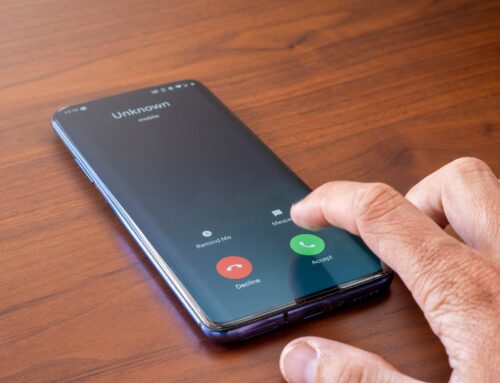
We speak frequently about the moving goalposts of UK and NZ pension legislation and how these might affect transfer options for NZ residents, and 2017 has been no exception.
For the first time in some years, there was a bit of potentially good news for investors regarding access to their funds! Here’s a quick recap of the year’s significant updates – and a few words of caution about how some members of the global financial services industry appear to be changing their tactics.
To transfer or not to transfer, that is (still) the question
The three main options for people living in NZ with retained benefits in UK pension schemes have not altered. In other words, having weighed up the various pros & cons, you can still either:
- leave your UK pension where it is
- transfer it to a NZ QROPS (Qualifying Recognised Overseas Pension Scheme)
- switch/transfer it to a SIPP (Self-Invested Personal Pension).
What changed with QROPS in 2017?
There were two major rule changes this year for QROPS (or ROPS, as they are now frequently referred).
Firstly, in March the Chancellor of the Exchequer introduced a 25% Overseas Tax Charge for transfers of UK pension schemes to QROPS registered in different jurisdictions to where the member resides, unless both the scheme and the member are in the European Economic Area (EEA).
Fortunately, the exemption clause applicable when both the individual and pension savings are in the same country allows NZ tax residents to transfer to a NZ QROPS without being liable for this tax charge (although there could be implications if they subsequently permanently relocate from NZ). You can read about this in more detail in this earlier blog post.
Then, in April the “70% rule” was removed from QROPS withdrawal conditions, allowing people to take 100% of their fund from age 55. You can read about this in more detail in this earlier blog post.
What changed with SIPPs in 2017?
SIPPs were not directly affected by any of this year’s rule changes. However, the removal of the aforementioned 70% rule effectively means that accessibility of funds from age 55 is the same for QROPS and SIPPs.
A SIPP may still offer one key advantage over a QROPS, and that’s the ability to defer the payment of NZ tax. For anyone outside their 4-year NZ transitional tax period (and under the age of 55), a transfer to a QROPS will likely generate a NZ tax liability which cannot be paid from the scheme itself. Conversely there’s no immediate tax liability if someone chooses to move to a SIPP; this only occurs when benefits are drawn at age 55. So, instead of having to pay immediately and out of their own pocket, clients can pay from funds received when they make their withdrawal which is when the liability falls due.
There may be other valid reasons for someone choosing to move to a SIPP rather than transfer to a QROPS but, as always, these must be considered on an individual basis.
An interesting side-effect of QROPS rule changes
Every week we hear from people who’ve been contacted by offshore financial advice firms, keen to handle their UK pension transfer. (LinkedIn seems to be the most common method of stalking expats). Based on recent feedback, there’s been a noticeable shift in these companies’ tactics. Whilst they still seem to be unreservedly recommending a pension transfer in all cases, it would appear that they now favour SIPPs over QROPS.
Without wishing to besmirch anyone, GBPensions would like to offer the following explanation and observations:
There are numerous “advisers” around the world operating from jurisdictions that, unlike NZ or the UK, have little, if any, regulation of financial services providers and products. Many providers of QROPS and SIPPs allow such advisers to use their products, and consequently there is little control of the advisers and their actions, nor any protection or redress for clients.
Prior to the UK’s March 2017 rules changes, these advisers were selling QROPS products to people around the world like they were going out of fashion. From our own experience, this has caused severe problems for NZ resident clients because the overseas advisers have no knowledge of the NZ tax implications for the client – nor do they seem to care. The transfer to a NZ QROPS can help mitigate the effect of NZ taxation, but advisers operating in Jurisdiction A, selling a QROPS registered in Jurisdiction B to a client living in NZ can exacerbate the tax position considerably.
The aforementioned rule changes were purposely introduced by the British Government to thwart the actions of advisers like this, and mean that few people will now benefit from transferring to a QROPS outside of their own country of residence.
Not unsurprisingly, within days, overseas advisers started extoling the virtues of transferring to SIPPs.
GBPensions’ director, Tony Chamberlain, comments, “QROPS and SIPPs have become a commodity used by unregulated and unscrupulous advisers who generally have no financial services qualifications of any credibility, and operate from dubious overseas jurisdictions.”
What to do if you are contacted by an overseas financial services institution
Before working with any financial advice firm, we would recommend checking these pages of the FMA (Financial Markets Authority) website:

If you receive an unsolicited call or e-mail from an overseas organisation, you may wish to report them to the FMA via their online complaint form.
British expats in NZ could also consult the UK’s FCA website, which includes a lengthy list of Unauthorised firms and individuals.
A ban on UK cold calling is edging closer
The UK government has confirmed that in early 2018 it will bring forward draft legislation to ban cold calling. Whilst definitely another step in the right direction, it seems possible that the ban may not take effect until 2020.
It may also be worth noting that, even when this cold calling ban does come into force, overseas advisers will not be bound by it.
If you have any questions concerning any of the issues raised in this article, please don’t hesitate to get in touch.




